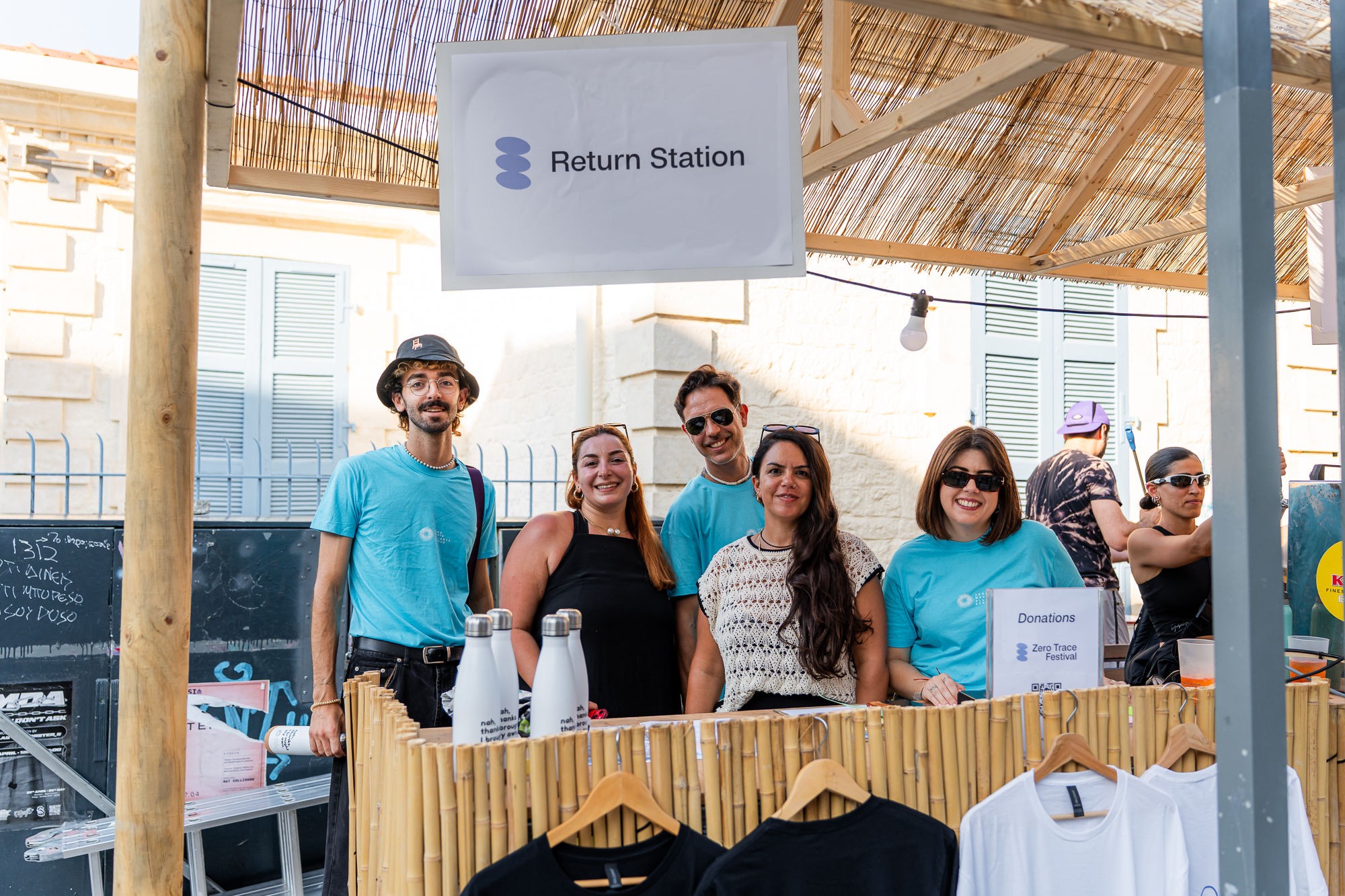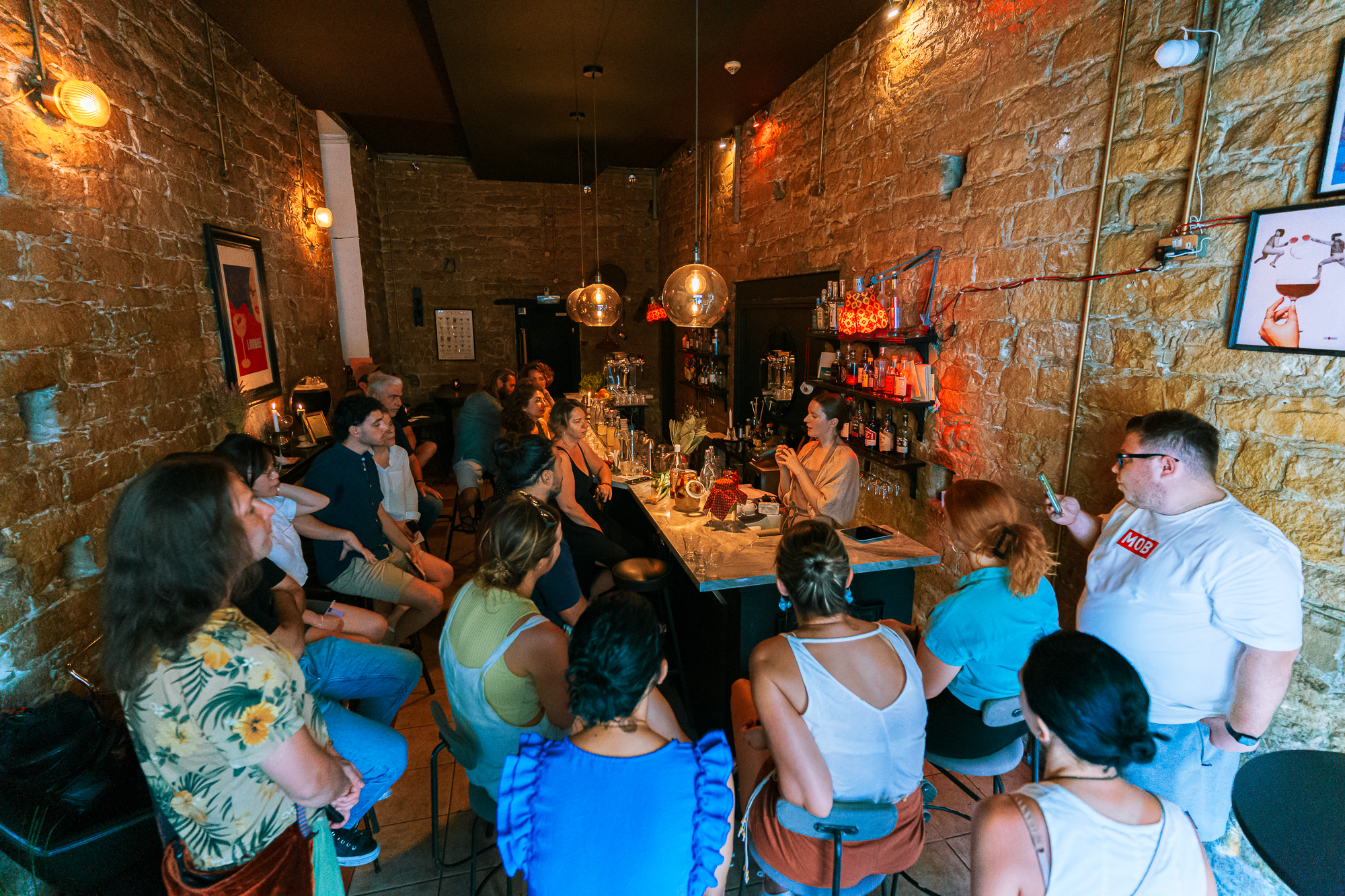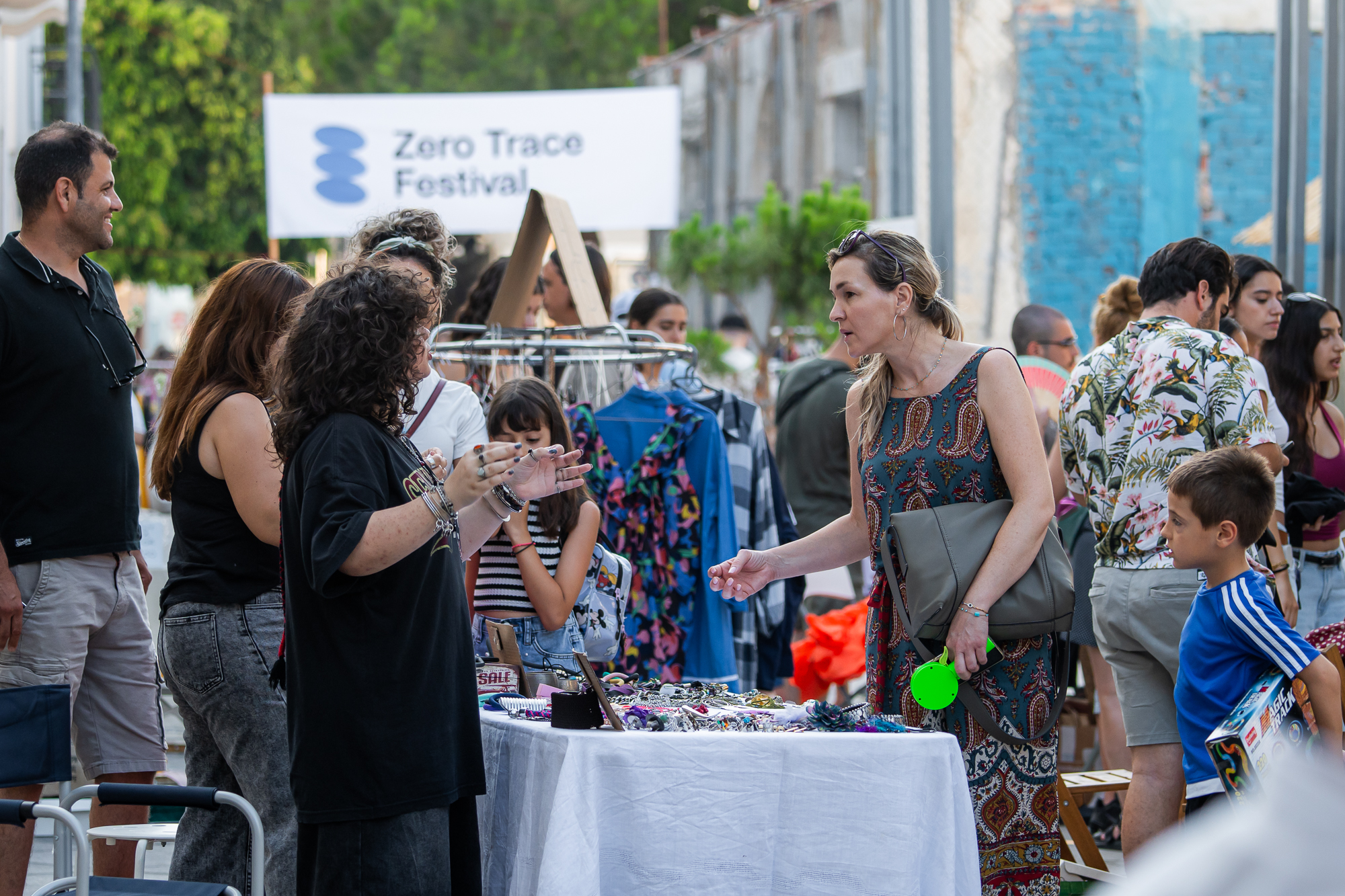By Kristina Cernakevica
Two weeks ago, something quite revolutionary happened in the heart of Limassol. University Square – often a site of casual weekend strolls – became the stage for Cyprus’s first truly low-impact community celebration.
The Zero Trace Festival, held on June 21 and 22, didn’t just invite people to enjoy food, music, and conversation. It showed how a public event could take place with minimal waste – without single-use plastics, overflowing bins, or the environmental footprint festivals usually leave behind.
Organised by the Zero Waste Alliance Cyprus, in collaboration with The Garage Community and supported by Limassol Municipality, Lemesos 2030, and NetZeroCities, the festival featured live music, local food, a vintage market, and engaging workshops.
Attendees participated in hands-on activities like composting and fermentation, while panel discussions explored sustainable fashion and waste management. At its core, the festival’s bold goal was to leave no trace behind.
“We organised this festival to show how you can live, eat, dress, throw parties and celebrations without producing garbage, without leaving behind waste and without depleting resources,” explained Sara Mariza Vryonidi of Friends of the Earth and Zero Waste Alliance Cyprus, co-organisers of Zero Trace Festival.

The Zero Waste Approach
The festival began on Saturday evening at Sto Dromo Bar, where visitors had the chance to meet the organisers and connect with like-minded people in a relaxed atmosphere. The mayor of Limassol, Yiannis Armeftis, also paid a visit, showing his support for the event and how it connects with Limassol’s Mission for carbon neutrality.
By Sunday afternoon, University Square had been transformed into a vibrant space, featuring vintage market stalls, low-waste food and drink vendors, and hands-on workshops, offering both entertainment and valuable opportunities to learn about sustainable living.
There were no disposable cups cluttering the festival. Everything, from cups and plates to banners and water stations, was designed to be washed, returned, or reused. A simple €2 return deposit system covered the cost of a cup or a plate, refundable upon return.
Water stations replaced bottled water sales, and food stalls served vegan and vegetarian dishes without the need for cutlery or straws. While these systems are widely used in Europe, they are still not mainstream in Cyprus, making this an effort to emphasise alternative ways to deal with waste in festivals and other mass events.
Educating and Inspiring Change
Beyond the festivities, the Zero Trace Festival offered a strong educational component. Workshops and discussions were hosted in nearby bars, cafés, and the Cyprus University of Technology, which have values aligned with the festival. At Le Chat Kafeneio, kids took part in the “Transforming Food Waste into Wonder”workshop, learning how to turn food scraps into new plants.
Over at Last Word Bar, the Zero Waste Fermentation Workshop demonstrated how to create probiotic-rich foods from food waste. At Library Bar, the “Food Composting: How & Why?” workshop taught attendees the benefits and techniques of turning food scraps into nutrient-rich compost.
Additionally, two insightful panel discussions were held at CUT (Cyprus University of Technology). The first, “Where Does My Trash Go and Why?” addressed the journey of waste and its environmental impact, while the second, “Can Fashion Be Sustainable?” sparked a critical conversation about the fashion industry’s ecological footprint and how consumers and creators can make a difference.

These sessions, conducted in both Greek and English, offered attendees the opportunity to deepen their understanding of sustainable living and waste reduction.
For the organisers, this blend of celebration and education was essential. Zero waste, as Vryonidi emphasised, isn’t a slogan – it’s a mindset. The festival wasn’t a showcase of perfection, but rather a vibrant case study showing that a cleaner, joyous event is possible!
As hundreds passed through over the two days, the Square remained pristine – no overflowing bins, no stray packaging. It was tangible evidence that leaving no trace isn’t just idealistic, it’s achievable.
Their efforts also gently challenged the norm: in the UK alone, festivals create over 23,000 tonnes of waste yearly.
Cyprus may not reach that scale yet, but without change, its booming festival scene would leave all too familiar marks on streets and the environment.
“Our events and celebrations don’t have to be always associated with waste,” Vryonidi said. “If we want change, we need to do things differently.”
For many who attended, the festival was transformative. One visitor shared, “I’ve never been to a festival in Cyprus where I didn’t have to throw anything away.” This moment of realisation highlighted how innovative and necessary this type of event is for the island, and that was the true reward for us, as organisers.
The organisers consider the event a great success and hope it serves as a model for future festivals in Cyprus. We believe this marks the beginning of a broader shift toward more sustainable events across the island, and they are optimistic that change is on the horizon.
Kristina Cernakevica is a co-founder of Agno Zero Waste Grocery, a member of Zero Waste Alliance Cyprus, and a co-organiser of Zero Trace Festival.






Click here to change your cookie preferences